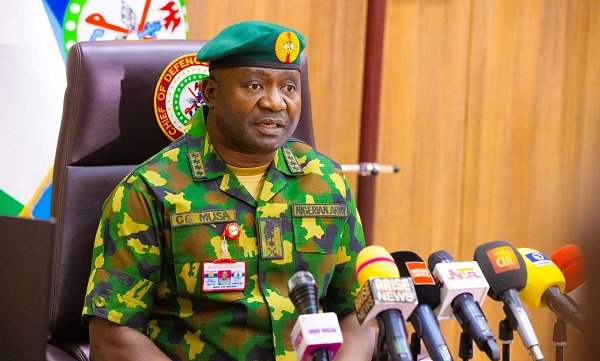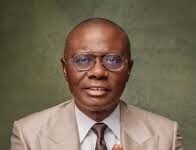The Defence Headquarters is to deploy over 800 special forces in troubled states like Benue, Plateau, and Borno to complement troops in combating their security challenges.
Chief of Defence Staff Gen. Christopher Musa made this known shortly before Army spokesperson Lt.-Col. Appolonia Anele, announced the death of 17 soldiers during a gun battle with bandits in Niger State.
Ten other soldiers were injured by the bandits during the incident in Bangi, Mariga Local Government Area. The number of bandits neutralised by troops was, however, not given by Lt.-Col. Anele.
At a DHQ training seminar in Abuja yesterday, Gen. Musa revealed that members of the special force are currently undergoing comprehensive training on how to tackle the rising threats to the nation’s security.
He said: “Sometime next week, we will be graduating the first 800 special forces team trained to face the challenges we are undergoing. The training is very comprehensive.
“We have realised that deploying them in pieces also creates that weakness that we see. We will be deploying them together, a force that stays together, that will understand each other. Because from experience, a fighting force must be able to understand itself.”
The CDS explained that the conference on Performance-Oriented Training and Trends in Contemporary Operating Environment,” was organised as a critical part of a shared commitment to building a professional and combat-ready force equipped to navigate the evolving operational landscape.
“Our mission also aims to create a unified training system that is adaptable, technology-driven, economical, and mission-driven.
“This entails expanding joint training programmes and doctrinal reviews as well as performance simulation and work-giving, among other innovations that will enhance professional operational ability.
“Furthermore, this training will enhance collaboration, cooperation, and ‘jointness’ among the services of other relevant security agencies.”
According to him, an effective response to the country’s complex security threats requires inter-service collaboration, cooperation and rapid integration of artificial intelligence, autonomous systems, advanced surveillance technology and sophisticated electronic cyber warfare.
He emphasised the need for the military to understand the enemy it is dealing with in order to prepare for emerging challenges.
![]()










